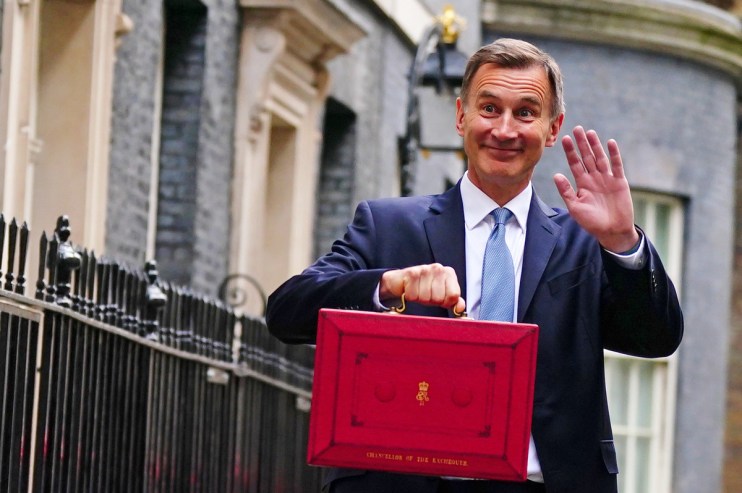Falling UK debt interest may allow room for tax cuts, Jeremy Hunt says

Lower levels of UK debt interest may allow room for the government to cut taxes, Jeremy Hunt has said.
The Chancellor spoke to Bloomberg TV yesterday while in Bern, to sign a new financial services agreement with Switzerland on mutual regulatory recognition.
The government, he said, plans to “cut the tax burden if we are able to” ahead of a general election, which must take place by January 2025, with Labour 20 points ahead in the polls.
Hunt said: “If debt interest payments go down then potentially that gives me more headroom and I could use that in lots of different ways but I would never use it in a way that would compromise the battle against inflation.
“We would like to bring down the tax burden in a way that is responsible.”
Thanks to lower inflation and market interest, borrowing costs are falling, with Oxford Economics chief UK economist Andrew Goodwin estimating an extra £11bn in headroom.
Since then, expectations have dropped even lower, with markets forecasting an interest rate fall from 5.25 per cent to four per cent next year.
Hunt and Prime Minister Rishi Sunak have both repeatedly pledged to cut taxes, with Sunak citing his plans as a “clear dividing line” with Labour and promising a “gear shift” in 2024.
However, under the Conservative government, the tax burden is set to hit a post-Second World War high, thanks to the huge rise in debt to 97.5 per cent of GDP, over the pandemic, and the government are under pressure from Tory backbenchers to slash taxes for voters.
Hunt stressed there was “still work to do” to cut inflation, which has dropped to 3.9 per cent from 11.1 per cent last year, but it is still twice the Bank of England’s two per cent goal.
On strikes, the Chancellor insisted: “We’re not going to agree to pay deals that threaten our progress in bringing down inflation. The way to bring back industrial harmony is to bring down inflation.”
And on interest rates, he added: “I think people will start feeling more optimistic about their personal finances if they see interest rates on a downward trajectory.”
